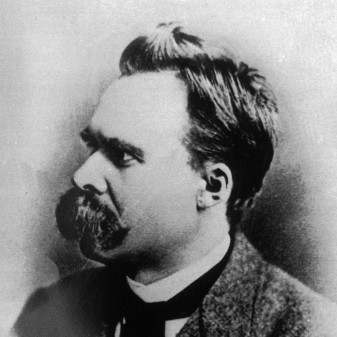 The Madman is a popular modern parable. It is possible that you have heard it or heard of some adapted retelling of it.
The Madman is a popular modern parable. It is possible that you have heard it or heard of some adapted retelling of it.
From the Parable of the Madman we first hear Nietzsche’s cry, “God is dead.” It is a phrase that has since come to encapsulate most caricatures of his philosophy. For good or bad, he was a remarkable thinker indeed. Unfortunately, many misunderstand him as well as fail to read his works in full.
Case in point, is the Parable of the Madman.
In the parable, a man comes running into a town center with a lantern in hand and a message to deliver. His rallying cry is that God has died. God is no where to be found and it is us who have killed him.
Many people cite this parable up to this point and neglect what follows. Nietzsche, a man not to be blamed for thinking too little, follows up this statement of “God is dead” with a flurry of questions. Rather than delighting in the abolishment of theism, the madman is then sent reeling in a whirlwind of verbal processing.
“What were we doing when we unchained this earth from its sun? Whither is it moving now? Whither are we moving? Away from all suns? Are we not plunging continually? Backward, sideward, forward, in all directions? Is there still any up or down? Are we not straying, as through an infinite nothing?” (From The Gay Science)
Rather than celebrating the “death of God” from the world, the madman is left questioning everything. It is true that Nietzsche did not like the concept of God, let alone the Christian iteration of God, but he also knew that without some form of faith mankind would be untethered and fumbling through existence. Nietzsche did not even approve of the elevation of man into becoming a new god, as many misinterpret his concept of the uber-mensch. Nietzsche wanted to do away with all forms of worship, do away with all forms of pity, and allow humanity to rise into its ultimate destiny.
Understood properly, the Parable of the Madman may verbalize the reality that humanity is functionally atheistic already while also despairing that we (and Nietzsche himself) have no idea what to do without some form of religion in our lives. Not only that, but without some understanding of God or “ultimate concern” that can guide us and hold us accountable, humanity is bound to tumble endlessly without any gravity or grounding principle. All ethics, all principles, all meaning are done away with and we are left having to decide for ourselves which of our 1,000s of whims are the best to pursue.
So before any of us try to quote Nietzsche, let us quote him fully. Let us take his words so seriously that we read all of them, in context for his observations (that many operate as functionally atheists) and for his wisdom (that without a concept of a higher power we are wandering lost among the stars).
Because, truth is truth no matter where it comes from and we as thoughtful and thinking Christians ought to read and understand our greatest critics.

